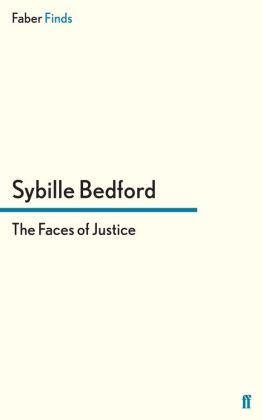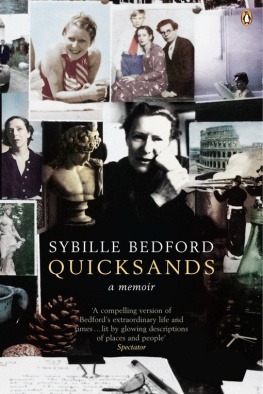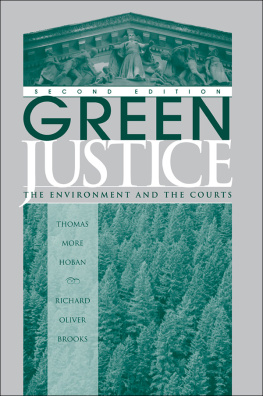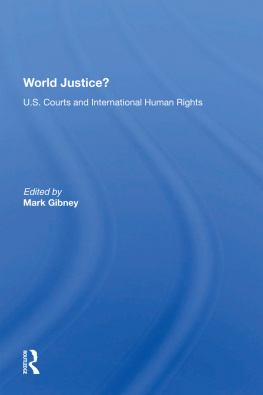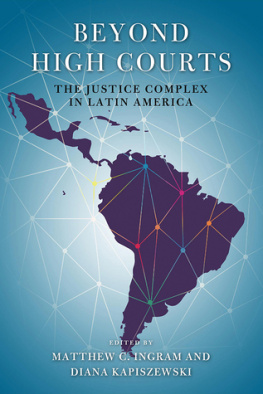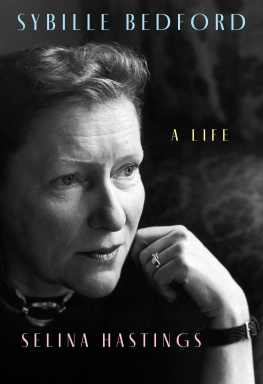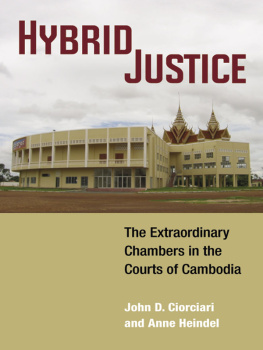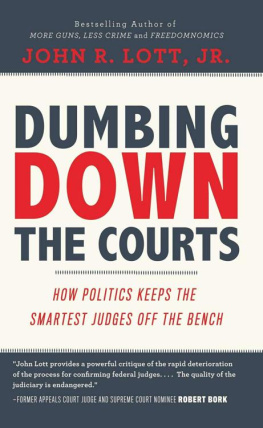Above the dais, the ornate chair, the robe, the still head of the Judge rises above the court as if suspended.
Thirty-two cheeses, my Lord, valued three hundred pounds four shillings and nine pence.
The first moments inside a Court of Law are like the first moments at a playthe eye notes the scene, sound begins to reach the ear, then words. Sense converges later.
The Judges head does not stir. It is the head of a man aged first into a face only, the face of a very old woman, aged now into a fine dry shell, the almost transparent covering of precise slow workingsan ear, a brain, a hand. For, at some distance, animated by the same mechanism, there is a hand, a hand moving, a hand with a pen, moving, writing, writing on, in a steady small compass.
My Lord, we will establish to the satisfaction of the members of the jury Resonant and deliberate, it is the Crown: a massive Treasury Counsel, florid, bursting with self-possession, speaking up-right from the well of the court, rocking himself to and fro in front of the advocates bench.
With respect Another gowned figure has leapt to his feet. My learned friend is perfectly aware that the cheeses were never found.
I would invite your Lordships attention to Count Two, Count Two of the Indictment.
The apples? The voice of the Judge is disincarnate; but audible enough to those in practice.
I respectfully submit that the apples have been traced.
Resipsaloquitur?
Quite so, my Lord.
The jury shift a little. Twice six persons, three of them women, fitted to two benches, one above the other, in an open box that seems just to hold them. They also seem much alike, grey, absent-faced, thin-suited people: civilians firmly stuck to their place in this scene of adorned, articulate and accomplished men.
You may put in the apples, Mr. Maule, says the Judge. There is now a trace of urbanity in the voice.
Thank you, my Lord.
The other figure subsides. Someone hands him a screw of paper. He glances at it and tosses it over his shoulder to a junior on the bench behind. The junior, a fine sheeps face under a square-fringed wig of dirty white, pushes up his spectacles to read, then passes on the paper further down the bench. Another junior taps counsel on the back; two string-bag wigs meet in confabulatory hisses, black cloth billows.
The Crown has resumed; the Judges hand is moving.
The pit, the few square feet of centre floor free of pews and boxes, is filled with two large tables, stained biscuit-brown like all the other boarding, a-flutter with a snowstorm of documents. Here solicitors and their clerks labour in pinstripe or blue serge and their own hair, passing charts and schedules like cruets at a lodging house. The Clerk of the Court, in a stall of his own below the dais, sits togad behind a stack of foolscap, looking at his fingernails, suddenly seizes a telephone one has not perceived before and hardly trusts is there, cups his hands over his elegant theological face and the instrument, and is seen speaking into it but not heard.
An usher moves about softly, careful not to trip. A handful of extraneous and upset looking people sit neatly in the three more short rows of bench squeezed by the entrance door.
A tall Silk, splendid as Pompey, strolls into court, bends over a colleague who turns up a dimpled Boswellian face, whispers loudly, flings himself into a seat, crosses his fine legs, shoots out an arm in a robust yawn; then picks himself up and walks out again.
At the far end of the court, in the largest box of all, on an axis with the Judges chair, sits the prisoner in the dock. It is a neat, close-knit, youngish man, and he too holds himself very still. He sits on his chair in the front of that capacious loose-box, very much alone, the second cardinal point in the cats-cradle of all the eyes, the thoughts, the emotions. His small, smooth face is all profile; smarmed palish hair, pale stretched baby-skin, showing the bones, showing the skull, showing the thoughts move: swimming slowly, carefully, showing the nerves stretch; showing fear. He has the look of the not so young man who did not wish to grow old, the look of the shifty man-servant. And all of the time he is face to face with the head and the hand that are the Judge.
In the dock with him like an idle umpire in the ring, sits a warder in uniform, bulky, relaxed, unconcerned.
The charge is fraudulent conversion to his own use and benefit of certain property. He is, in fact, accused of having stolen some apples and some cheeses from his employer.
The time of day is about eleven oclock of a winter morning ; the place is Number Two Courtor was it Number Four?of the Central Criminal Court in London. The Old Bailey.
*
That case, or one like itit was a very ordinary casecame on some four or five years ago. Mutatismutandis, it could come on this year and it could come on, God willing and if this particular judge has not retired, next year and the year thereafter. I walked in on it by chance when I was first trying to learn the ways of our law courts. I have sat since through many cases of all kinds, but that one was the first criminal trial and the paragraphs above, with a few enlargements, are what I wrote of what I saw at the time. Now, I propose to go through this casein memory as well as words in black on whitewith a fine toothcomb. For I have decided to start on a journey to the law courts of some other countries, and I want a kind of yard-stick. Before going off to see how they are doing it elsewhere, I want to put down, if I can, commit to mind and paper, the look, the sound, the ways of some daily English trials.
*
We had missed the beginning. The gradual filling of the place with men and papers; the Judges coming on with the flurry of sudden rising and subsiding which is the stroke of transsubstantiation into Court. The popping-up, immediately afterwards, of the prisoner, shot from the floor into a box. The calling of the jury, one by one, name by name; their oaths; the ordered opening moves gone through with detachment and dispatch; the formal charge read by the clerk; the plea (Not Guilty) before counsel was able to get up and begin, May it please your Lordship, and outline the prosecution case.
The facts appeared to point in one direction. They nearly always do until ones heard another side. On the Fourteenth Day of December last (in counsels words) Crawford, the accused, a van-driver by occupation was instructed by his employers office to pick up a consignment at a certain warehouse and deliver it to Messrs Mawlesbury, Fruiterers & Provision Merchants in the Borough of Kensington. Cheeses and applessix barrels of Coxeswere put into his van; cheeses and apples were seen driven off; no cheeses and apples arrived at Messrs Mawlesburys. Shortly afterwards, the accused left his job. He could not be found at the address he had left. When he was arrested, he had on him the receipt for a 200 deposit on a motor-car. Apples, an undomestic amount of them, were found in the dwelling house of the accuseds brother-in-law; apples had been offered for sale to a costermonger on the Fulham Road by a man answering the accuseds description.

